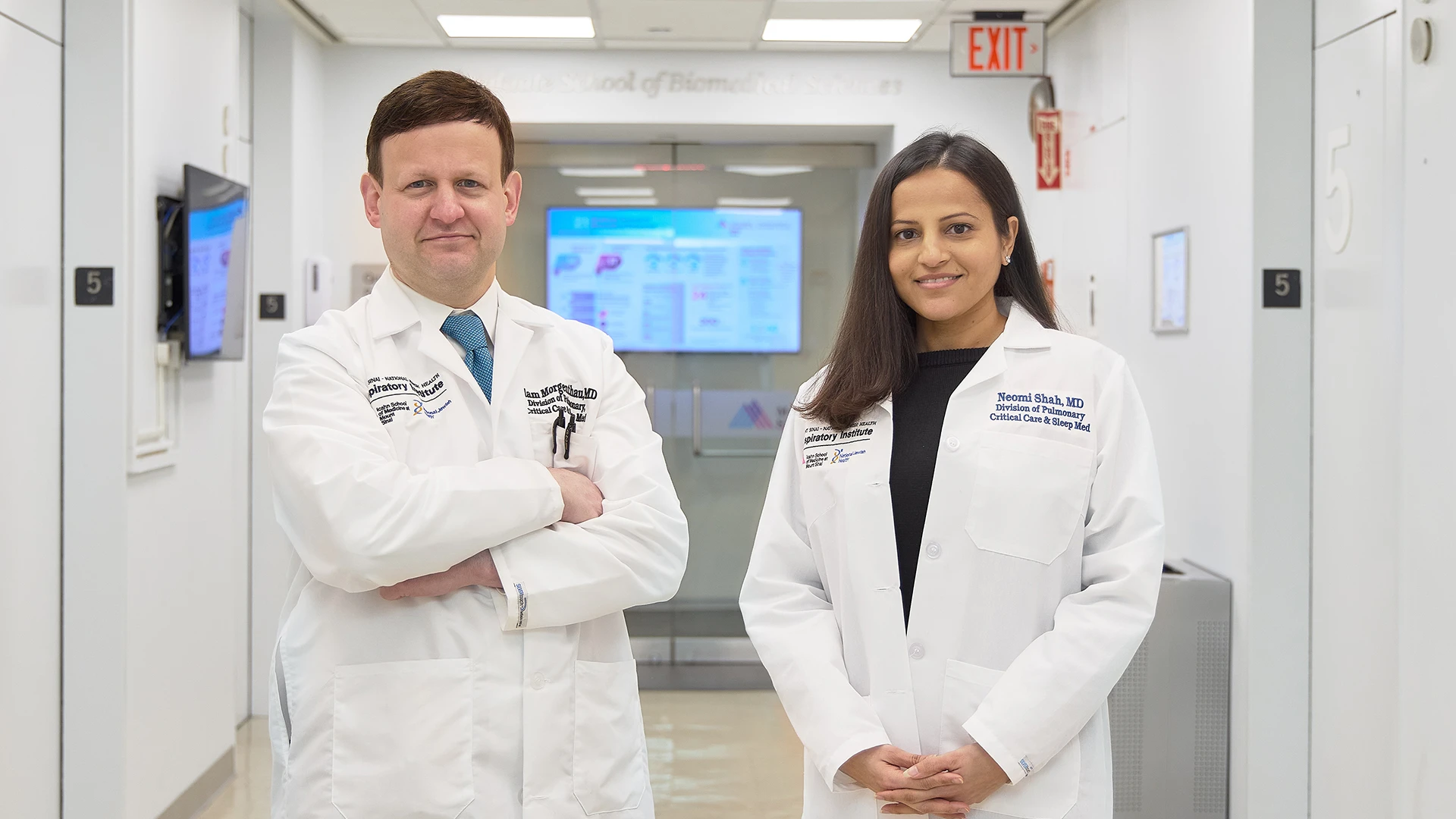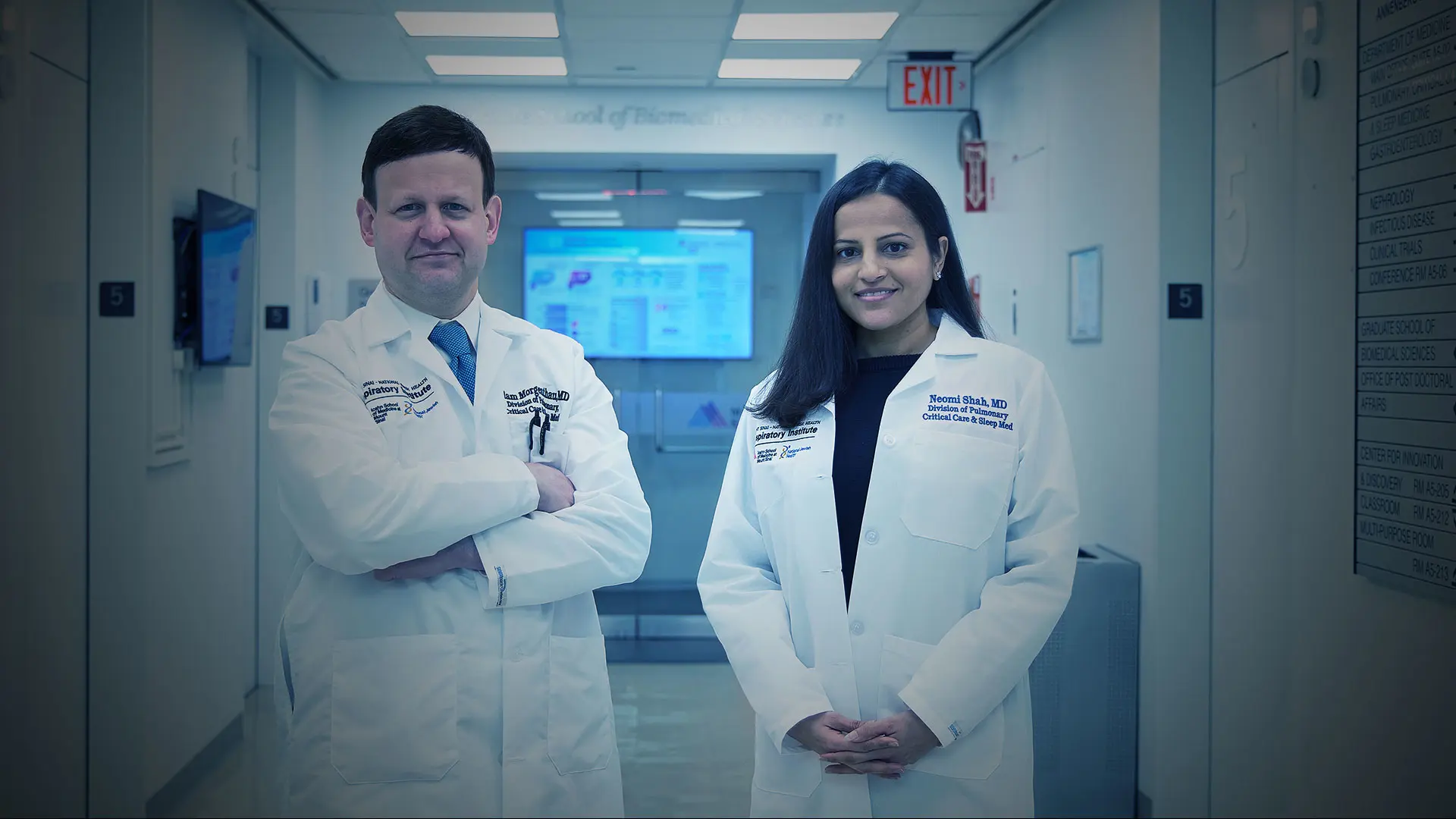As part of the war against COVID-19, Mount Sinai pulmonologist Neomi Shah, MD, saw very clearly how increased collaboration among health care institutions helped generate the necessary, and timely, research to make progress against the pandemic. It also gave her and her counterparts at National Jewish Health in Denver and Jefferson Health in Philadelphia added impetus to proceed with a new initiative that will enable all three institutions to work more closely in addressing similar crises and pulmonology challenges.
Building upon the successful clinical partnership between these leading national programs, the three institutions are working to standardize their approach to research as outlined in the Respiratory Institute Master Research Agreement. Although negotiating an agreement to this effect was in the works long before COVID-19, the pandemic added urgency to it due to the need for rapid approval and implementation of industry-funded studies.
“It creates a standardized protocol and systematic approach to research for all three sites, which removes barriers to inter-institutional collaborative research and enhances our appeal to sponsors because we hope to have a clinical trial for a new therapeutic agent up and running in a few weeks compared to the usual six months or more,” says Dr. Shah, Professor of Medicine (Pulmonary, Critical Care and Sleep Medicine) at the Icahn School of Medicine at Mount Sinai. “That gives us an edge in attracting these cutting-edge trials, and as a result our patients benefit because they have access to new therapies.”
It is one of several ways in which Mount Sinai, Jefferson Health, and National Jewish Health are working together to advance understanding, diagnosis, and treatment of a range of pulmonary diseases, some of which have traditionally been orphan diseases. It began to take shape in December 2013, with the announcement of the Mount Sinai – National Jewish Health Respiratory Institute, a unique partnership focused on patient care and research in asthma, chronic obstructive pulmonary disease, interstitial lung disease, and other respiratory or related diseases. The first location opened at Mount Sinai’s Manhattan campus in June 2015 and a second location opened at Mount Sinai-Union Square in 2018. The Korman Respiratory Institute at Thomas Jefferson University opened in 2017.
Launching clinical trials in a few weeks rather than six months
Since then, Mount Sinai and National Jewish Health, along with Jefferson Health, have been exploring opportunities to further integrate their clinical programs, research initiatives, and patient data. The result is cross-institutional expertise that has the potential to identify novel treatment targets and expedite the approval of new therapeutic agents for patients with rare or complex pulmonary conditions that have few, if any, options for treatment.
One of the more notable integration efforts has occurred among the three institutions’ sarcoidosis programs, which have embarked on their first tandem clinical trial—a phase 2 study that will assess the efficacy, safety, and tolerability of CMK389, an interleukin-18 inhibitor developed by Novartis. The double-blinded, randomized, placebo-controlled, repeat-dose study is open to patients between the ages of 18 and 75 with biopsy-proven chronic pulmonary sarcoidosis, a chest X-ray with abnormalities consistent with sarcoidosis, and the ability to perform pulmonary function test measures outlined in the American Thoracic Society/European Respiratory Society Guidelines, among other criteria.
“This trial is an important step forward in integrating our programs,” says Adam Morgenthau, MD, Associate Professor of Medicine (Pulmonary, Critical Care and Sleep Medicine) at Icahn Mount Sinai, and Director of the Sarcoidosis Program at The Mount Sinai Hospital. “It creates a very robust sarcoidosis program that not only has considerable strength in research and clinical management of patients but also a very large and diverse patient population, which enables us to participate in more clinical trials.”
In addition to the trial, the three sarcoidosis programs are developing new protocols that will standardize clinical management for approximately 80 percent of patients who present with the disease. They have also launched a series of quarterly conferences to review challenging cases. “There have been discussions about launching sarcoidosis awareness initiatives for the public and the medical community and the introduction of a fellowship program for trainees who are interested in pursuing that as a career specialization,” says Rafael L. Perez, MD, Director of the Sarcoidosis Program at Jefferson Health. “The collaboration is still very much in its early stages, but the more we work together, the more we can better understand the disease and manage it correctly.”
“Bundling our expertise and sharing our experience enables all three institutions to achieve improved outcomes among our respective patient populations.”
- Glen B. Chun, MD
Integration is also occurring among the three institutions’ bronchiectasis programs, which are developing and implementing unified protocols for diagnosing, testing, and treating patients and creating a unified patient database to enable evaluation of novel treatments. “Because it is relatively uncommon and the patient population is very diverse, it has been challenging to systematically study the disease,” explains Glen B. Chun, MD, Clinical Director of the Mount Sinai – National Jewish Health Respiratory Institute, and Assistant Professor of Medicine (Pulmonary, Critical Care and Sleep Medicine) at Icahn Mount Sinai. “Bundling our expertise and sharing our experience enables all three institutions to achieve improved outcomes among our respective patient populations.”
Expertise and experience are being shared in other ways across the three institutions, including a new National Institutes of Health (NIH) grant development workshop launched by Mount Sinai and National Jewish Health. Over the course of four one-hour sessions, internal faculty candidates can access a panel of NIH-funded researchers from both institutions who review their applications and identify areas for improvement. An ad hoc committee has also been created to provide additional support. Dr. Shah notes that two workshops have been held to date and feedback from participants has been positive. “It has been a terrific collaboration between Mount Sinai and National Jewish Health, and I think it will result in successful NIH grant applications with cutting-edge research at the three institutions,” she says.
More research, more therapeutic options, more positive outcomes—the objectives that have driven previous collaborations and integration among Mount Sinai, National Jewish Health, and Jefferson Health continue to provide the impetus for new initiatives that advance the treatment of rare and complex pulmonary conditions. “I think the collaboration among the three institutions has been a real success in raising awareness of the importance of pulmonary medicine, standardizing a model of patient care, and enabling us to do research to a degree that was not previously possible,” says James H. Finigan, MD, Director of The Respiratory Centers of Excellence, and Medical Director of the Lung Cancer Screening Program, at National Jewish Health. “Once the master research agreement is finalized, we want to take full advantage of the opportunities that creates and look at other initiatives we can partner on, such as subspecialty training programs, or potentially bringing other centers into this collaboration.”
Dr. Shah agrees. “These collaborations are helping us attract increased funding for research and more clinical trials, all of which enable us to deliver state-of-the-art care to our patients. We are continuing to look for ways to combine our strengths and enhance our profile as leaders in the field of respiratory health.”
Featured

Adam Morgenthau, MD, and Neomi Shah, MD
